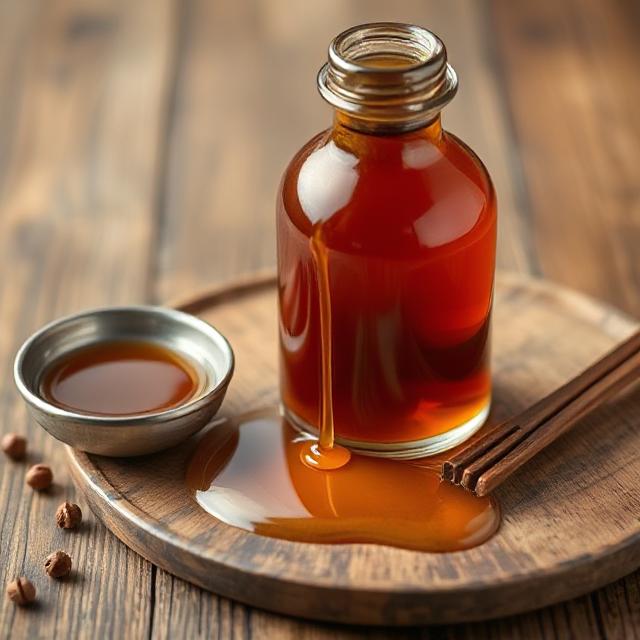Introduction to Akorn Syrup
Few ingredients tell a tale as rich as the Akorn Syrup. While its name may not yet echo in every household, this golden, silky sweetener is steeped in remarkable history, cultural significance, and practical uses that make it a culinary treasure. From its unique production process to its multitude of benefits, the Akorn Syrup is an ingredient worth discovering.
A Unique Start: The History of Akorn Syrup
What sets Akorn Syrup apart begins with its origins. The syrup owes its creation to the innovative practices of local communities and their connection to nature. Long before industrial sweeteners dominated the market, artisans developed methods to extract sweetness from nature in sustainable ways. Akorn Syrup rose through traditions of careful cultivation and craft.
The name “Akorn” is rooted in the ingredient’s association with both strength and harmony. Early producers believed that this syrup symbolized resilience, much like the mighty oak tree whose acorn seeds inspire its name. Today, this syrup reflects not only their ingenuity but also their dedication to preserving ancient food-making processes.
The Art Behind the Akorn Syrup
Production is where Akorn Syrup truly shines. Unlike common syrups made through high-intensity refining processes, Akorn Syrup is crafted using a gentler approach. Much of the syrup’s character comes from its all-natural ingredients, which may include harvested tree sap, fruits, or agricultural byproducts – dependent on the region and variation of production.
This process involves heating the source material and allowing it to reduce slowly into a thick, amber-colored syrup. During this process, natural sugars caramelize, giving the syrup its signature rich, toasty flavor profile. The entire method showcases a balance between patience and precision, resulting in a product that maintains its purity and depth of flavor.
Crafting Akorn Syrup is often carried out by small producers who prioritize sustainable practices. For every batch made, care is taken to ensure minimal environmental impact, which makes it not only delicious but also an environmentally conscious choice.
A World of Flavor and Versatility
Once you experience Akorn Syrup, it’s clear that it belongs in every pantry. Whether drizzling it over pancakes, stirring it into beverages, or using it as a glaze for savory dishes, the versatility of this syrup is unmatched. Its flavor—a harmonious mix of caramel, molasses, and sometimes a hint of nuttiness—complements a wide range of foods.
Akorn Syrup is also popular in baking. It adds complexity to desserts like pies, cookies, and cakes with its distinctive depth of flavor, offering an excellent alternative to commonly used sweeteners like honey or maple syrup. Additionally, the syrup has found its way into artisan cocktails where bartenders use it to elevate classic drinks with a signature twist.
But the world’s love affair with Akorn Syrup isn’t based solely on its taste. Its texture—smooth and slow-pouring—lends itself to visually stunning presentations. Whether cascading down stacks of pancakes or swirled into yogurt, there’s an undeniable allure in the way this syrup transforms dishes into works of art.
Packed With Nutritional Benefits
Beyond its flavor, Akorn Syrup is praised for its nutritional properties. Unlike many highly processed syrups that offer empty calories, this syrup contains trace minerals such as potassium, calcium, and magnesium, derived from its natural sources. These minerals support various bodily functions, from maintaining healthy bones to promoting heart health.
What’s more, Akorn Syrup is often lower in processed sugars than commercial syrups, making it a slightly better choice for those looking to manage their sugar intake. Its lower glycemic index helps avoid sharp spikes in blood sugar levels, providing a steady release of energy.
However, like any sweetener, moderation is key. While it adds great value as part of a balanced diet, consuming it in excess could negate its potential benefits.
A Cultural Gem
The cultural significance of Akorn Syrup cannot be understated. For many communities, making and enjoying this syrup is a tradition that has been passed down through generations. Families often gather around large boiling cauldrons to cook the syrup, sharing stories and laughter while the aroma of caramelized sweetness fills the air. These rituals not only celebrate the syrup itself but also the bonds of community.
Akorn Syrup has also entered the world of artisan food trends, symbolizing pure, slow food in contrast to the fast-paced, mass-produced commodities that dominate much of the market. Food enthusiasts and chefs alike have embraced it as an emblem of authentic, hand-crafted cuisine.
Fun Facts About Akorn Syrup
There’s more to Akorn Syrup than meets the eye—or the taste buds. Here are a few lesser-known facts:
- Seasonal Magic: The best Akorn Syrup is said to be made during specific harvesting seasons when its source material is at peak flavor. Some consider spring and early autumn the prime times for production.
- Storage Longevity: Properly sealed, the syrup can last for years without losing its flavor, making it a pantry staple for those who love to savor.
- Global Appeal: While its exact roots are tied to specific regions, Akorn-Syrup has found fans worldwide who value it for its authenticity and deliciousness.
Elevate Your Culinary Creations With Akorn Syrup
If you’re looking for an ingredient that combines flavor, function, and history, Akorn Syrup is your answer. Its deep flavor can bring out the best in both sweet and savory dishes, while its artisanal production and ties to sustainable practices make it a thoughtful choice for mindful cooking.
Exploring food isn’t just about nourishment—it’s about discovering new tastes, connecting with culture, and celebrating creativity. With Akorn Syrup, you get all of that in one golden, silky masterpiece. Why not add a spoonful of tradition to your kitchen and experience it for yourself? Your taste buds—and your recipe book—will thank you.



